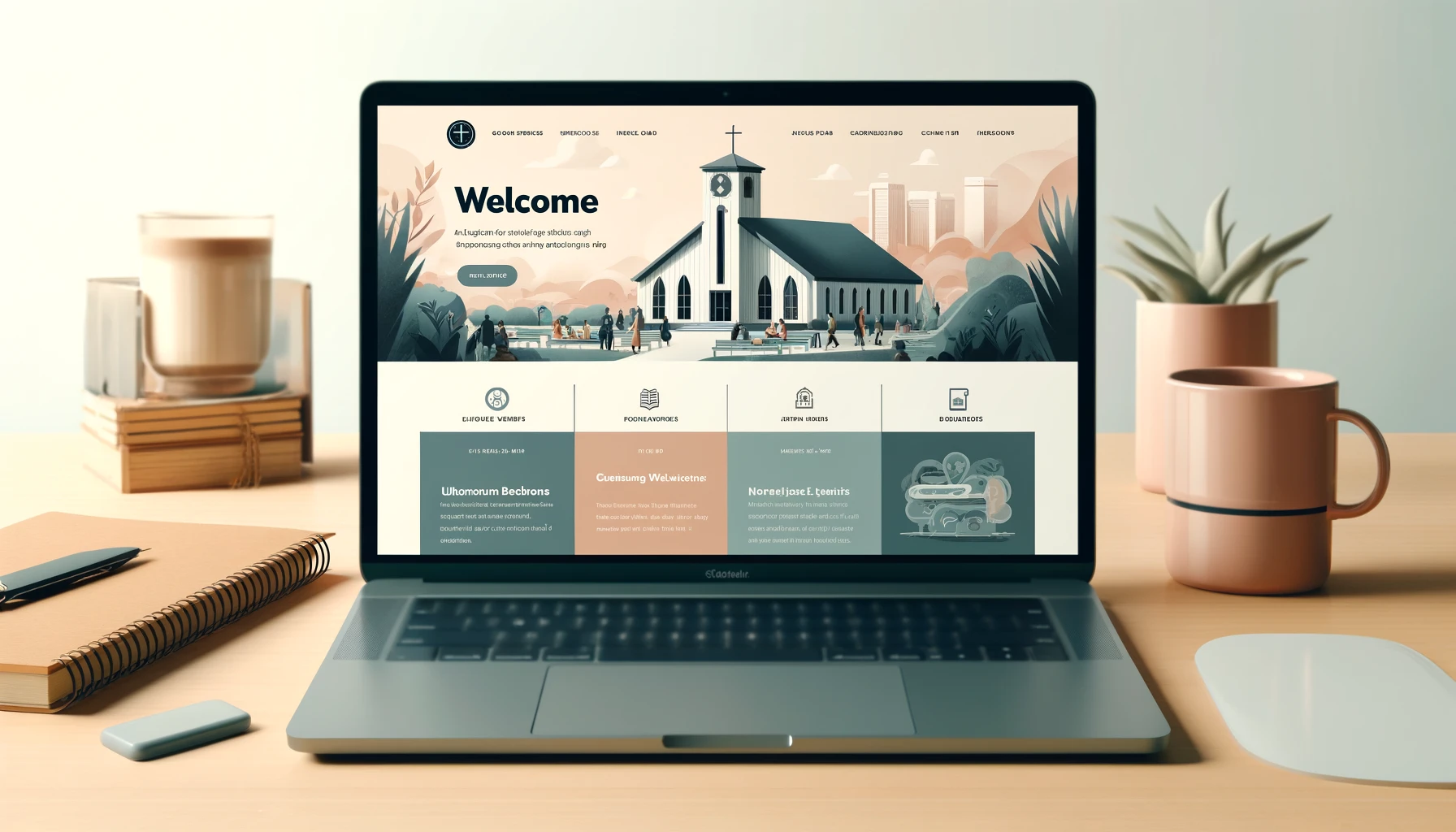Sermon outlines and transcriptions add fresh content to church websites, boosting SEO by incorporating relevant keywords naturally. This keeps the site dynamic, improves search visibility, and engages the community by making content accessible to a wider audience.
What does SEO stand for?
SEO is an acronym for Search Engine Optimization. Which is to engineer your website information that will help search engines like Google help its users find what they are looking for. For example: Google search for: What is seo and how does it work.
In today’s digital age, having a website for your church is not just an option—it’s a necessity. But it’s not enough to just have a site; your church website needs to be visible to those searching for spiritual guidance and community involvement. Search Engine Optimization (SEO) is the key to achieving this visibility, helping your church reach more potential visitors and spread its mission online effectively.
Having your church website rank on Google or Bing can lead to people finding you congregation or maybe getting much needed help if your church is running an outreach social program such as a soup kitchen.
Understanding the Basics of SEO
SEO is a strategic approach to enhance website visibility in search engine results, aiding churches to connect with seekers seeking community events, spiritual guidance, and religious teachings effectively.
Key Components of SEO
SEO involves several components, but at its core, it includes keywords, content quality, user experience, and technical aspects. Mastering these can significantly enhance your church’s online presence.
Keyword Optimization for Church Websites
Identifying the Right Keywords
Start by listing terms related to your church’s activities, values, and services. Tools like Google Keyword Planner can help you find keywords that your target audience might use to find services like yours. For example, if your church offers youth programs, keywords could include “youth church groups in [City Name]” or “spiritual guidance for teens.”
Implementing Keywords Strategically
Once you’ve identified your keywords, integrate them into your website’s content naturally. Place primary keywords in titles, headers, and throughout your articles or page content. Also, don’t forget to optimize your meta descriptions and tags, which can improve click-through rates from search engine results pages.
Creating Compelling Content
Types of Content that Resonate with Your Audience
Blog posts are an excellent way for churches to connect with their audience. Consider writing about upcoming church events, reflections on scripture readings, or how your church is impacting the local community. Each post should be insightful, encouraging, and aligned with your church’s values.
Content Planning
Develop a content calendar to keep your website fresh with regular updates. This can include weekly sermons, event updates, and holiday messages. Regular updates not only provide new content for your congregation but also signal to search engines that your website is active, boosting your SEO efforts.
Optimizing User Experience
Your church website should be easy to navigate and aesthetically pleasing. Ensure that new visitors can easily find essential information like service times, location, contact details, and about us page. A well-organized website enhances user experience and reduces bounce rates, which positively affects your SEO.
Page Speed and Mobile Optimization
Use tools like Google PageSpeed Insights to evaluate and improve your site’s loading time. With more people using mobile devices to access the internet, having a mobile-optimized site is crucial. Ensure that your website is responsive, meaning it adjusts smoothly to any screen size.
Why Backlinks Matter
Building Quality Backlinks: Backlinks are links from other websites to yours. They are crucial for SEO because they signal to search engines that others vouch for your content. High-quality backlinks can significantly boost your search engine rankings.
How to Acquire Good Backlinks
Create partnerships with local businesses and community groups that can link back to your site. You can also write guest posts for religious blogs and websites. For example, writing an article on community service and linking it back to your church’s website can help build your backlink profile.
Importance of Local Church SEO
Local SEO is essential for making sure that individuals in your vicinity can easily locate your church when they are looking for nearby places of worship. This is especially crucial for reaching out to potential new members who are interested in finding a church community to join.
Optimizing for Local SEO
Create a Google My Business account for your church, which allows you to appear in local search results and Google Maps. Regularly update your profile with current information, photos, and posts. Encourage your congregation to review your church on Google, as positive reviews can improve your local SEO.

Tools to Monitor SEO Performance
Utilize Google Analytics and Google Search Console to track your website’s performance. These tools can help you understand how visitors interact with your site and identify areas for improvement.
Evaluating SEO Success
Regularly review your SEO strategy based on analytics data. Look at metrics like page views, the average time on site, and rankings for targeted keywords to measure your success and make informed decisions about future SEO efforts.
SEO is a powerful tool that can help your church extend its reach and fulfill its mission online. By understanding and implementing effective SEO strategies, such as keyword optimization, content creation, and local SEO, your

